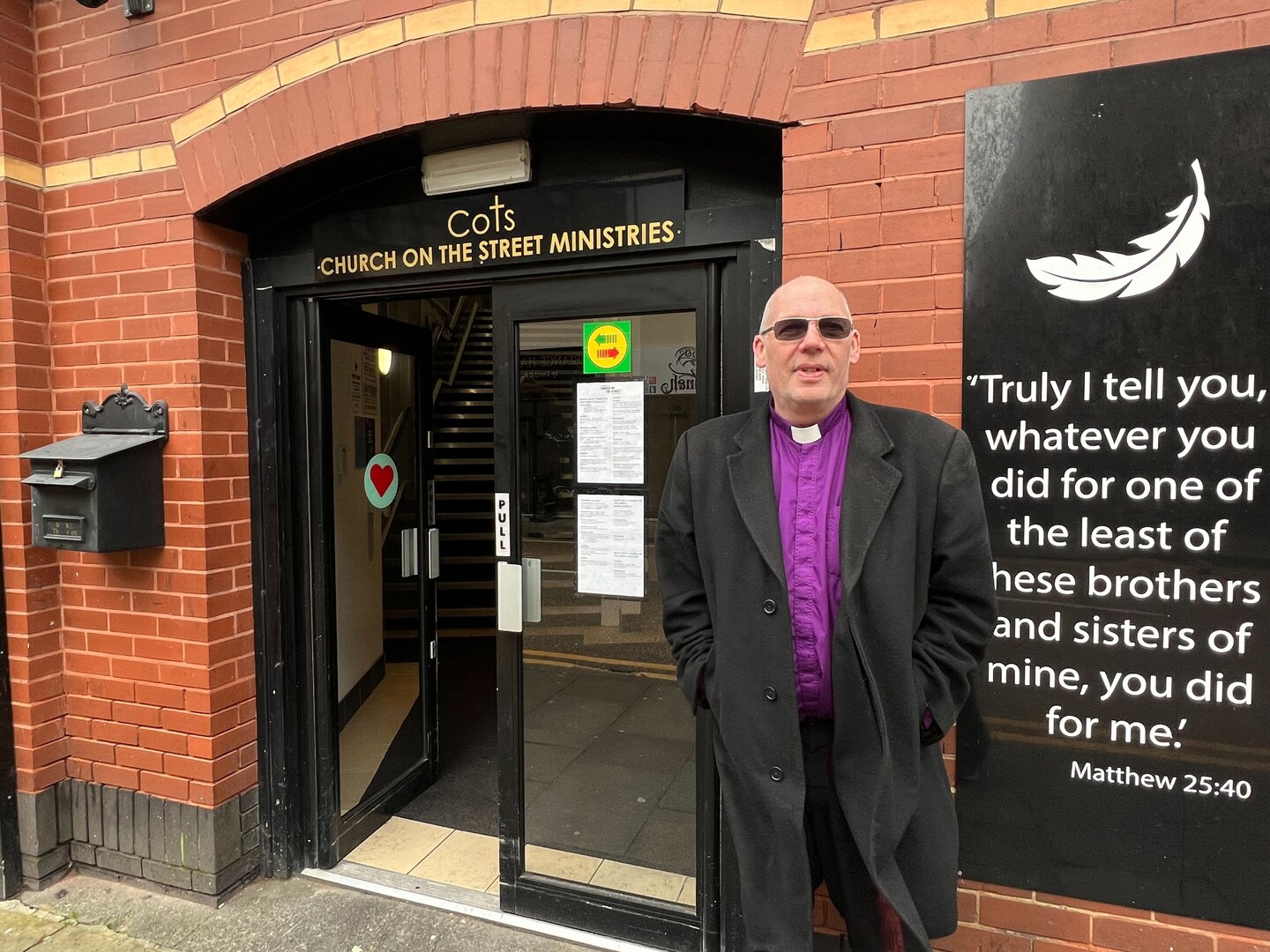“A lady the other day, she put her arms around me, crying, because we put some heating on for her,” said the pastor, Mick Fleming, who runs the church and the associated Church on the Street charity from a space that used to be a gym. He has heard about people stocking up on candles and blankets, refusing to turn on their heat or skipping meals.
Fleming, 56, has a fascinating story of his own. He is a former drug dealer who became a priest. He has been working to help lift people out of poverty for more than a decade. He says the need has suddenly become much more acute.
Fleming is based in the hardscrabble city of Burnley, which, in the context of historic inflation, has earned the notorious distinction of having the highest cost of living among cities and towns in Britain.
Nationally, inflation is at 10.7 percent, near a 40-year-high, according to figures published Wednesday. But because of income inequality, there’s a north-south geographical divide in how soaring food, fuel and energy costs are being felt. Many cities in Scotland, the north of England and Northern Ireland have been hit harder than southern England.
In Burnley — with a population of 90,000 and about an hour’s drive north of Manchester — inflation is estimated to be 12.4 percent, according to the Center for Cities think tank. At the same time, Burnley gets the worst ranking for cost of living because wages here are lower than in most cities, its car-dependent residents have to spend a lot on gasoline, and three-quarters of homes have poor energy-efficiency ratings.
Those drafty, poorly-insulated homes are expensive to heat — as was especially clear this week, when a dusting of snow covered much of Britain and temperatures dropped below freezing.
Rising costs are prompting more and more people to seek out the sort of support offered by Fleming’s church: a space to warm up, a hot meal, a hot shower, secondhand clothes, laundry services.
“We have double the people coming in,” Fleming said. Meanwhile, the church’s own energy bills have doubled over the past year.
About 200 people were there when The Washington Post visited around lunchtime on a recent day.
“I need the heating to keep warm,” said Mandy Cook, 48, who was having a slice of apple pie with a half dozen locals, discussing news of a toddler who died of exposure to mold.
“You shouldn’t have to wear your jacket in your own home — it’s wrong,” Cook said, noting that she was dealing with a respiratory illness.
Britain relies heavily on natural gas for heating homes — 85 percent are heated by gas boilers — and for generating electricity. The government is subsidizing energy bills this winter, cushioning the impact of high gas prices. But the average household’s monthly energy bill is still about $260 — double what people were paying on average a year ago. The monthly figure is expected to rise further in April, when some subsidies end.
Those on prepayment meters, who have to pay for their energy in advance because their landlords insist on it or because of previous debt, usually pay an even higher rate.
Ashley Davidson, 32, a barber in Burnley, said he has taken drastic action to help with his bills. Two months ago, he moved into an RV, which is heated with a wood-burning stove. “It’s cheap, and you can wake up in a new location everyday,” he said. On the downside, he said, “you can wake up freezing cold.”
Davidson, who volunteers his haircutting services once a week at Fleming’s church, said energy bills are a constant theme of conversation with paying and nonpaying customers alike.
“People have been hit hard; it’s a low-employment town,” he said.
In its heyday, in the 19th century, Burnley was one of the world’s most important centers for cotton weaving. Today, it’s a working-class city arguably best known for the Burnley Football Club.
David Allen, 62, a mental health counselor who works at the church, said he has tried to reduce costs by heating just one room at home, wearing a jacket inside and using hot-water bottles. He visits the local library because it’s warm and has free internet, he said, and he sometimes turns to food banks.
“I have to be careful with money,” he said. “The working people are becoming the new poor.”
The Resolution Foundation, a think tank, reports that Britain is facing its tightest living-standards squeeze in a generation. The “toxic combination” of 15 years of income stagnation and growing inequality since the 1990s has meant that middle income households in Britain are now poorer by 8,800 pounds ($10,810) than the average of their counterparts in France, Germany, Netherlands, Canada and Australia.
The British government says it has made efforts to protect the most vulnerable in society, and officials note that while inflation has for the moment outpaced benefits and pensions, those are adjusted again each spring.
But others object that the country doesn’t appear to be in a strong position when National Health Service doctors are having to prescribe heating to help people with illnesses that worsen in the cold and when local governments are having to publicize “warm banks” where people can go to stay warm. The Post visited several such places in Burnley, including a community center and an empty theater.
Fleming, the priest, said there should be a bigger “society and government” response to the crisis, “as opposed to relying on an old-age pastor with a bald head and sunglasses.”
Earlier this year, two government-funded mental health nurses joined his Church on the Street team. But he said more is needed to help move people out of poverty.
He then turned his attention to a man in his 30s who had just walked into the church for the first time.
“Want a brew?” Fleming asked.



